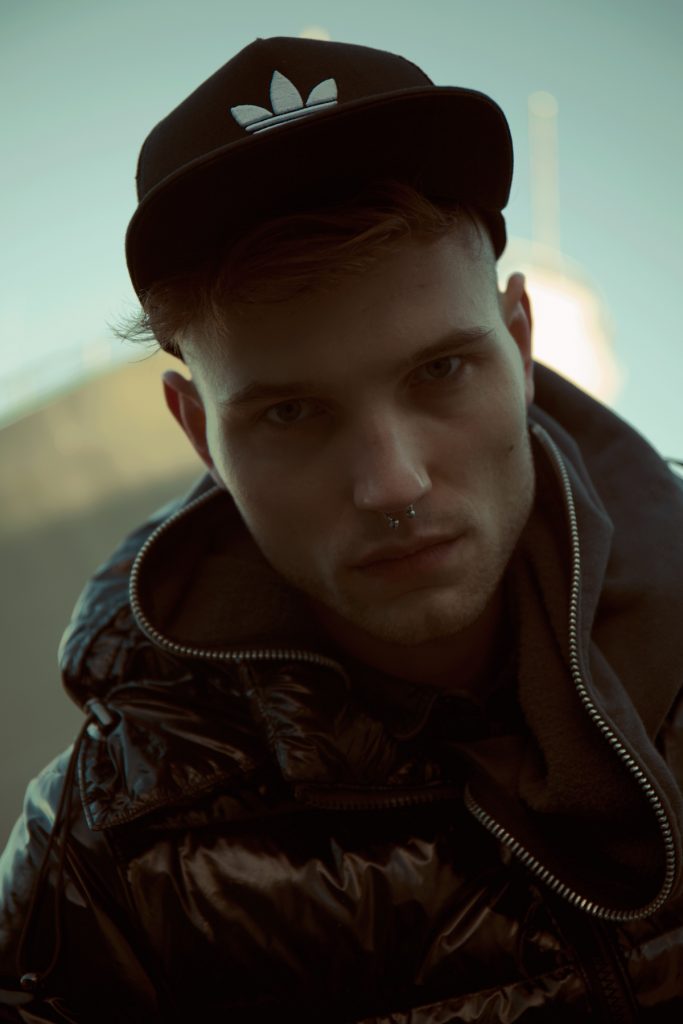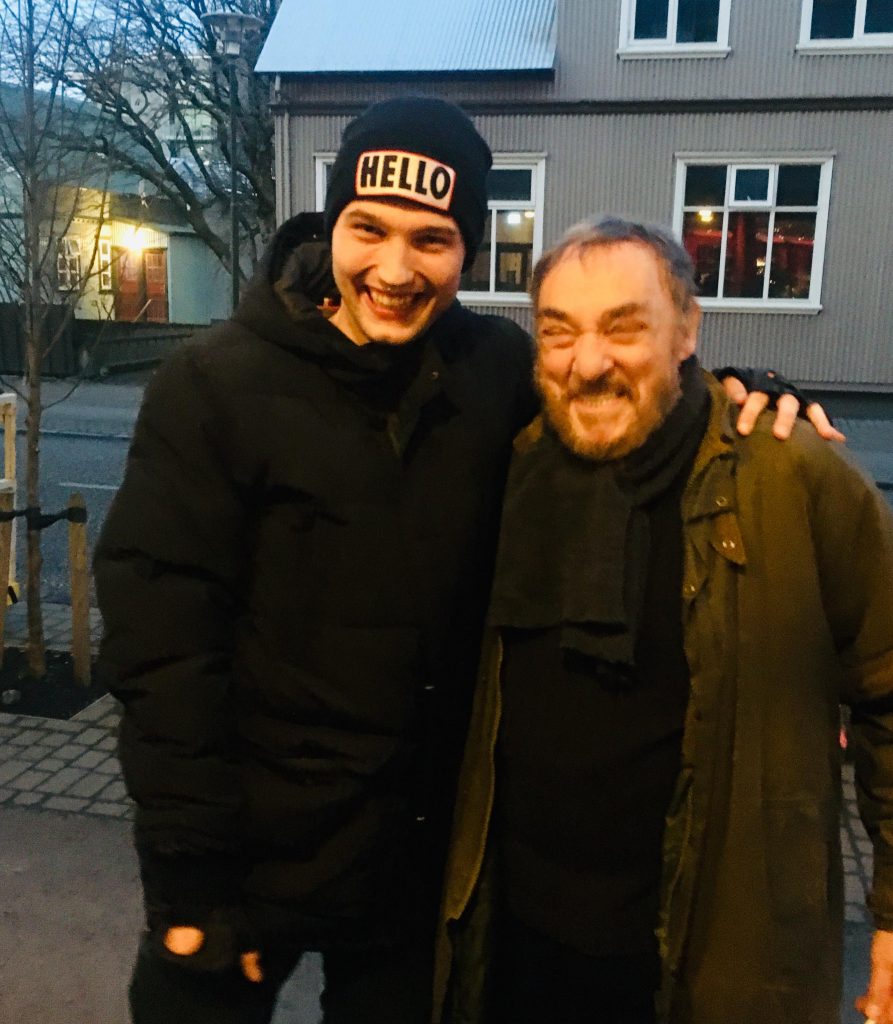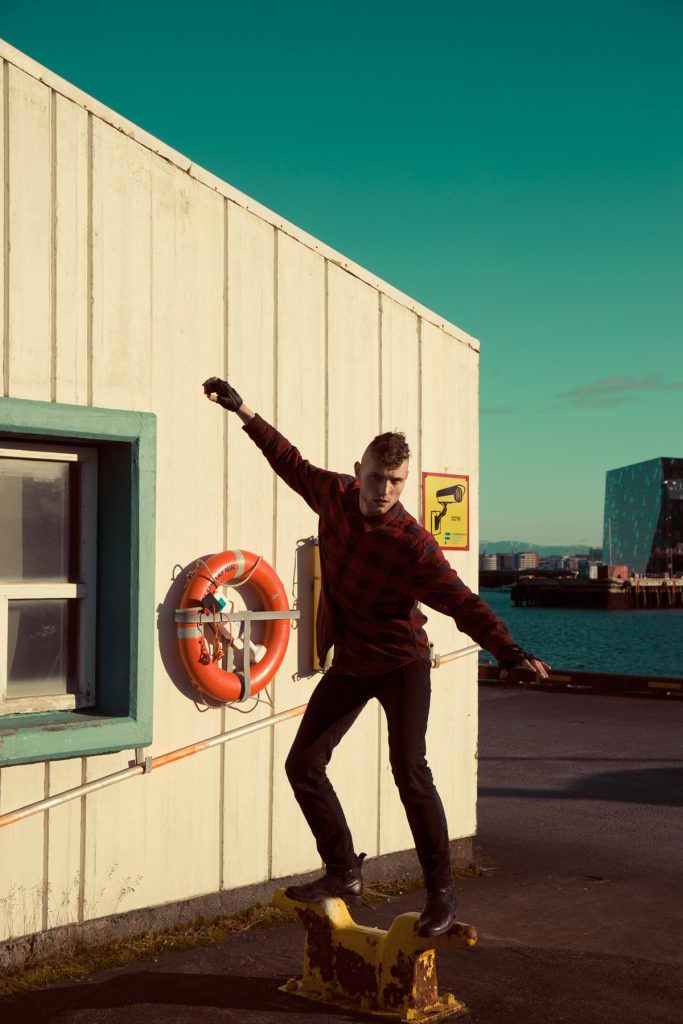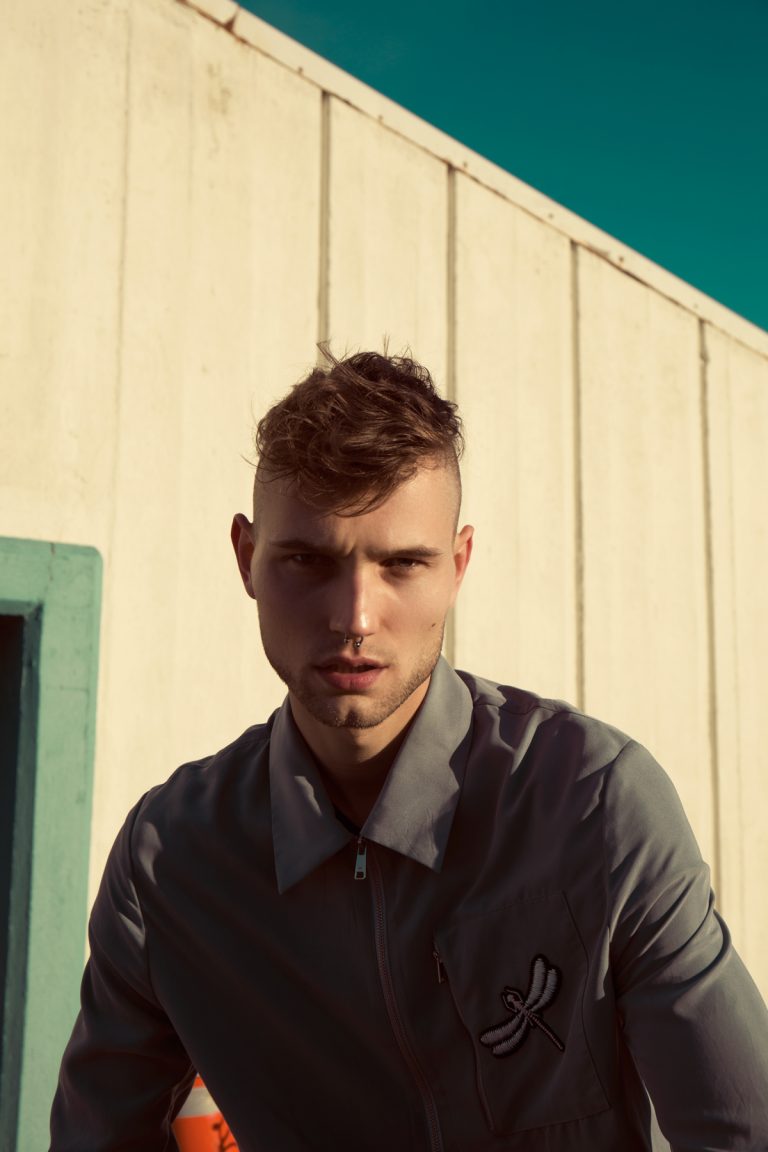What does it feel like to be Polish and queer and living in Iceland? Polish people make up the largest ethnic minority group in Iceland, presenting more than 40% of all immigrants in Iceland as of 2018. Last year it was estimated that over 19.000 people of Polish origin were living in Iceland. We at GayIceland are therefore keen to find out more about the Polish community in Iceland, the queer part of it to be more exact and what it feels like to be Polish and queer and living in Iceland. Today we interview a young gay man who didn’t feel comfortable in Poland and moved to Iceland.

At the age of 24, Jacob Volsky held hands with his boyfriend in public for the very first time. “I have a great sense of freedom here in Iceland. Like last year, I had a boyfriend and was able to hold hands with another man out in the street. Some of my straight friends didn’t understand why it was so special for me so I had to explain to them: “You can hold hands with someone already when you’re 14 and nobody pays attention to it,” but for me it was a great experience.”
Jacob moved to Iceland from Poland on a whim. “It was never my plan although I was always very interested in the Scandinavian countries so somewhere in my veins I had an urge to explore it but I never thought I’d be living here.”
“I have great sense of freedom here in Iceland. Like last year, I had a boyfriend and was able to hold hands with another man out in the street.”
He met a young woman at a party who had just returned to Poland after spending a summer working here and upon hearing her stories about Iceland Jacob thought he´d do the same. “I think it was a sign, and I took it so I’m here now.”
She assisted him in finding a job at Keflavík Airport and he found a place to stay in the neighbourhood, the Reykjanes peninsula. He only meant to stay a few months but 18 months later he’s still here. “I just fell in love with this beautiful country and feel comfortable here. So, I decided to stay and live here for as long as I could, and I’m really happy to be here. It was a hard decision to begin with because I had to change all my plans and change my whole life. And I didn’t know anyone here, not a single person.”
Can’t live in an oppressive country
Jacob had just finished a BA degree in Film Production but didn’t feel comfortable living in his homeland. He had heard that Iceland had good equality laws that included the LGBTI community and that it was a friendly environment for queer people. “It was a very big factor, actually, because I had come to the conclusion that I couldn’t live in a country that is so oppressive for the gay community. There’s no law or regulation in Poland for LGBT people at all. So, gays have no rights at all.”
Jacob says that the current government in Poland is very conservative and religious. “So, there’s no mentioning of queer rights in our laws, no mentioning of gay relationships or anything like that. It´s not forbidden to be gay, but in my opinion, things are moving into that direction – like in Russia – more towards what´s going on in the East of Europe. Although, now that we have a very oppressive government, I´ve noticed since I moved away that the gay community in Poland is waking up somehow. For example, this year was the first time that 15 cities in Poland organized a gay pride parade, which is unusual because before that it was only in 2 or 3 Polish cities. Now it’s even in the smaller cities. So the message from the gay community is that they’re stepping up, even though they have an oppressive government. Or maybe it’s because of it,” Jacob muses.
However, he’s not expecting big riots in Poland, yet. “I think that the Polish mentality is that we want freedom, but we don’t want to fight for it. However, when we are being provoked, we resist and decide we really need to fight back. So, it’s hard but I think the gay community is gaining strength.”
Parents comply with the Church
Jacob considers himself very lucky, his family is very supportive and he’s never had to hide his sexual orientation from them. “I came out in Poland seven years ago, when I was 18, although my friends knew about it already. I never actually tried to hide it although it sometimes was very painful for me. Homophobia is very strong in Poland, out in the streets in public places.

Sometimes you can’t be wearing a shiny jacket or fancy shoes unless someone will call you a “faggot” or whatever, and no one else says anything in return because they’re scared. It’s not like that everywhere in Poland but it’s very, very common. But, my family was awesome about this, I really appreciate how my parents reacted because my friends weren’t all so lucky, sometimes their parents refused to allow them to live with them anymore. And sometimes that wasn’t even exactly how the parents felt but what their priest expected them to do. Poland is a very religious society and if you’re a member of a very religious community, what the priest says is more important than anything else.”
With Polish people being the biggest minority group in Iceland, or over 40% of all immigrants, there’s a strong Polish community here. How does Jacob feel he’s treated, as a Polish immigrant and a gay one as such? “I’ve never felt any prejudice about either, personally. The only thing I’ve noticed is that sometimes Icelandic people complain about the Polish but not specifically about gay people.”
However, Jacob admits he doesn’t see himself as part of the Polish community in Iceland, but more of an international community. “One of the reasons I came to Iceland was because I DON’T want to be part of a Polish community. I go to a lot of meetings and events at The National Queer Organization Samtökin ´78 and I meet there people from all around the world. I don’t think there’s a specific Polish gay group in Iceland, there are some Polish gay men here, but I actually haven’t met one Polish lesbian here.”
“Homophobia is very strong in Poland, out in the streets in public places. Sometimes you can’t be wearing a shiny jacket or fancy shoes unless someone will call you a “faggot”
Come to think of it, Jacob says, gay women in Poland seem to be more quiet. “Whenever we talk about LGBT rights, we’re talking about men. Lesbians are either more quiet or we just don’t want to see them. I also think that in Poland it may be easier for them to hide. Two guys living together with a kid would be a scandal. But if it were two women, it wouldn’t be considered as bad. And if they identified as lesbians, people would say “Oh, it’s just a phase, it’s hormones” and wouldn’t treat it seriously. Which is bad of course, if people don’t take you seriously and don’t treat you with respect.”
Homophobia amongst homosexuals
But Jacob says that because of the way they’re brought up, there’s a lot of homophobia within the Polish gay community. “Many gay people there say they don´t need gay marriage, that they don´t want it. It’s easier to be quiet, not to show it, so they’re living in a straight Matrix. I’ve heard these opinions in the Polish gay community, that having kids is unnatural, not good. They prefer to be quiet and don’t want to be open about being gay and have been made to believe these things are wrong because they´ve been raised to believe that. Eastern Europe is not that open, the support you have here in Iceland is amazing. I want to be a husband one day, have kids and a family. But I couldn’t live in Poland because my culture wouldn’t allow it. So, for me living here is more natural for me; it’s my nature. I needed to escape all that.”
The outside world noticed that even though more gay pride parades were being held in Poland in 2017, there was still massive security present. Police officers with weapons and well-equipped vehicles followed the parades, which is surprising to those only familiar with the pride parade in Iceland. “Yes, there were some anti-gay protests organized at the same time. It’s common. You have to understand that neo-fascism is growing in Poland. These nationalists’ groups are growing and the government silently supports them by not doing anything about them. It’s good that the police are at least protecting the people participating in the pride parades because it can be risky for them; there has been some violence occasionally and of course, there’s no law against it. It’s like that everywhere, in big cities like Gdansk even, there’s always a lot of security measures during gay pride parades.”

As he mentioned before, the queer community seems to be slowly rising up in Poland, in response to the current regime so Jacob says it’s understandable that we’re hearing more and more about clashes in Poland than before. “There’s a bit more turbulence now than has been in the past, because we seem to be leaning towards the times of the Communist party. The government is going backwards a bit and trying to control the media more etc., which is sad because we’re about to celebrate 100 years of independence, yet we‘re going backwards now.”
See also: “I found love in Iceland” says queer Polish activist


